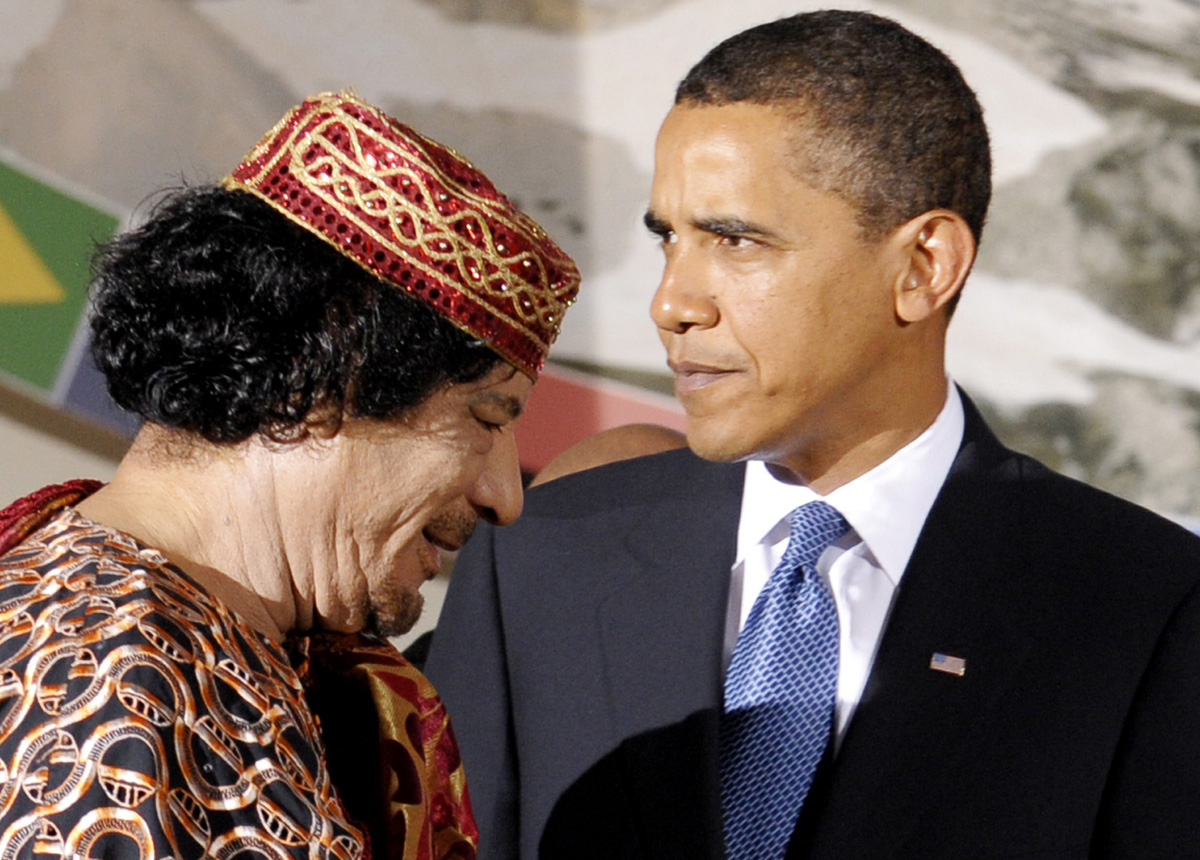Is President Obama supporting dictatorship and tyranny in Africa?
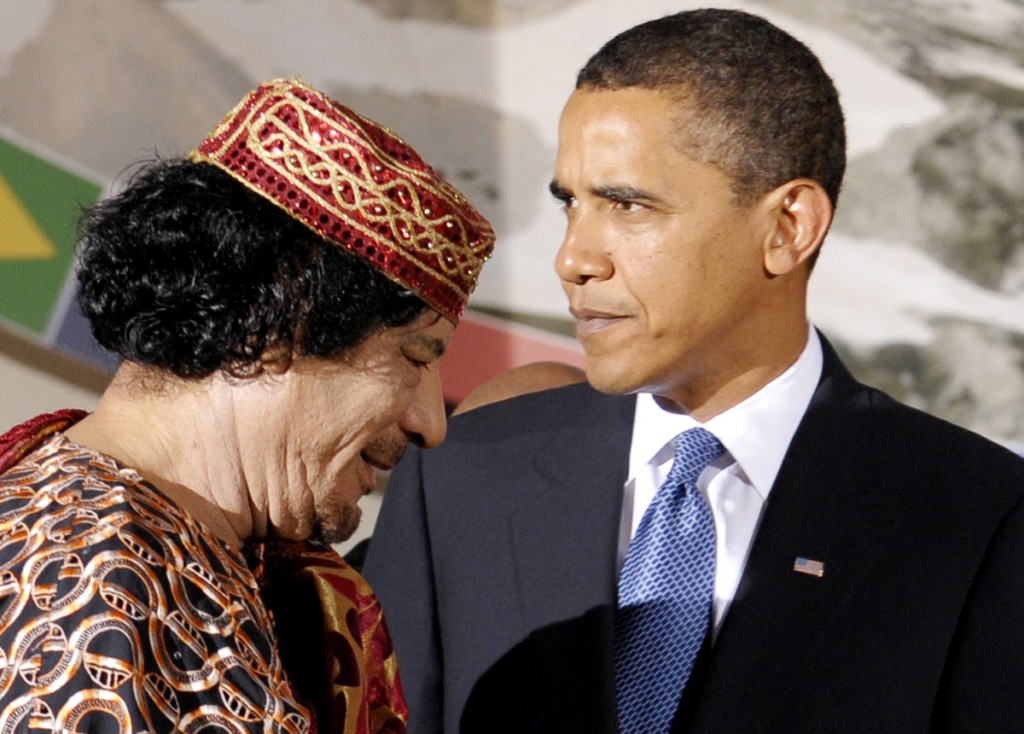
BY JIBRIL TURE
“Mr. Obama is supporting a dictatorship and giving legitimacy to tyranny,” Serkalem Selassie, 39, a refugee from Ethiopia living in Arlington, near Washington, D.C. reportedly told Washington Post‘s reporter Pamela Constable in reference to the president’s upcoming trip to Africa that includes a visit to Ethiopia. In the comments, which were part of an article that appeared online on July 3, Selasia, allegedly a former newspaper publisher back home who fled from Ethiopia and now works in a parking garage, reportedly added: “Day by day, things are getting worse. There is no freedom to speak, to meet. Anyone who writes can be jailed for associating with terrorism.”
It’s no secret that democracy and human rights protection are not the norms in every African country. While it’s unclear how much of a direct influence leaders in the developed world have on their African counterparts with regard to the embrace of democracy and human rights protection, the records show no proofs that President Obama has supported his African counterparts who have proven reluctant to embrace these values. Au contraire.
Obama’s visit to Ghana on July 11, 2009, only six months after becoming president, was primarily intended to support Ghana’s vibrant democracy and its respect for human rights. “This is a new moment of great promise,” the president said in his speech in the Ghanaian parliament, adding: “To realize that promise, we must first recognize a fundamental truth that you have given life to in Ghana: Development depends upon good governance. That is the ingredient which has been missing in far too many places, for far too long.”
The choice of Egypt, Senegal, Tanzania and South Africa for the president’s second trip in 2013 was along the same line.
Conversely, while Obama may not have intended to visit Kenya, the home country and burial place of his father, during his 2013 African tour, it was widely speculated that he avoided Kenya amid charges of crimes against humanity brought up against the president of Kenya, Uhuru Kenyatta, by the International Criminal Court. For sure, the Kenyan leader’s name was widely mentioned (alongside those of President Omar al-Bashir of Sudan who was under the same accusation, Robert Mugabe of Zimbabwe, a persona non grata in the West, and others) among the African leaders likely not to be invited to the U.S.-Africa Leadership summit President Obama convened in August 2014 in Washington, D.C. So in the end, the extension of Obama’s invitation to Kenyatta turned into a hot news item, even making the front page of some publications.
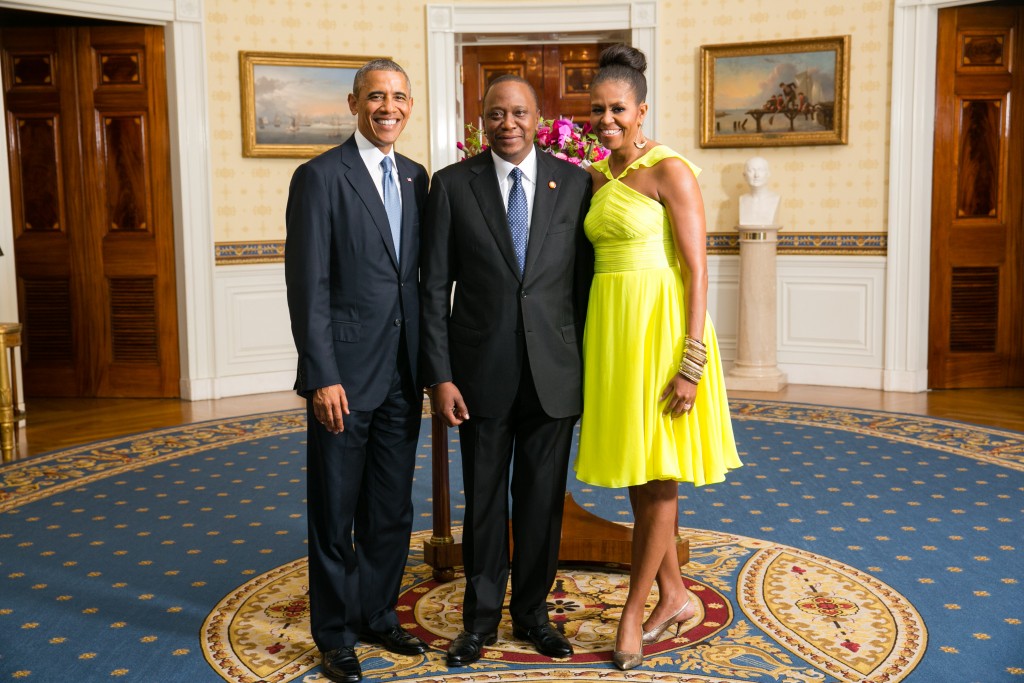
As many observers have pointed out, including Mwangi S. Kimenyi, Senior fellow, Africa initiative, at the Brookings Institution in Washington, the African countries the president has so far visited are seen as ‘safe bets,’ that is “those meeting some peace and governance thresholds,” stated Kimenyi, a Kenyan scholar who concedes that “For a more-lasting impact, though, the president needs to get out of his comfort zone, visit non-‘safe bet’ countries [on his upcoming trip], and connect with those showing openness to reforms, are rising economic leaders, and could be key strategic-security partners.”
Kenya and Ethiopia, two of such non-‘safe bets’ suggested by the Kenyan intellectual, turned out to be the president’s African destinations only a few days after the publication of this article.
As far as Ethiopia is concerned, clearly, despite turning the dark page of the Mengistu Haile Mariam’s dictatorship, notably with the adoption of a new federalist constitution, Ethiopia is not quite a flagship of democracy or a human rights haven in Africa. “Hopes that Ethiopia’s government would ease its crackdown on dissents ahead of the May 2015 elections were dashed in 2014,” one can read in the Human Rights Watch 2015 Report. The report goes on to say: “Instead the government continued to use arbitrary arrests and prosecutions to silence journalists, bloggers, protesters, and supporters of opposition political parties […].”
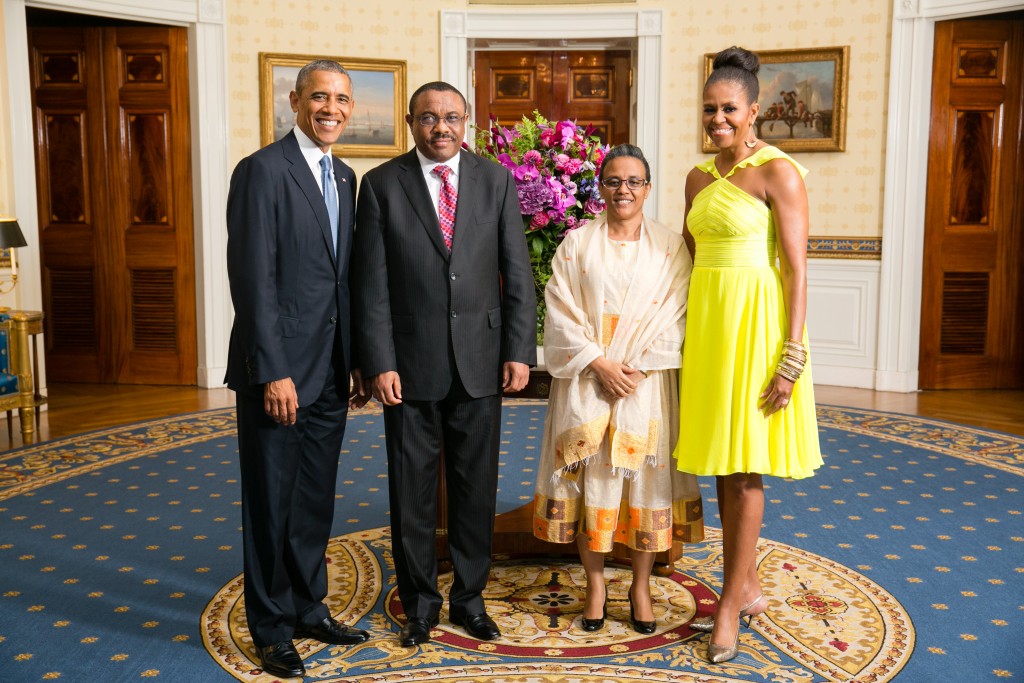
But, at the same time, the Ethiopian government has undertaken far-reaching economic reforms and boasts the fastest-growing economy in the world, something that, analysts say, warrants the acknowledgment and “blessing” of the president of the United States.
In announcing the president’s upcoming trip to Africa last May, the White House stated that Obama will travel to Kenya to attend the annual Global Entrepreneurship Summit, which the Kenyan government has agreed to co-host this year, in an effort to “build on the success of the August 2014 U.S.-Africa Leaders Summit and continue our efforts to work with countries in sub-Saharan Africa, including Kenya, to accelerate economic growth, strengthen democratic institutions, and improve security.” Not only does Addis Ababa fall squarely in this framework, given its economic performance and its laudable records with regards to fighting the Al-Shabaab terrorist organization in near-by chaotic Somalia; the headquarters of the African Union is located in the Ethiopian capital, offering President Obama the opportunity to address leaders of the Pan-African organization while there.
The Obama administration is on record for trying to stop African heads of state who, by and large, are attempting to stay in power beyond the end of their constitutional mandate. During his meeting on May 4, 2014 with President Joseph Kabila of the Democratic Republic of Congo in Kinshasa, the capital, Secretary of State John Kerry pledged $30 million in support for transparent and credible elections, as the signs were pointing in the direction of President Kabila’s intention to delay the next presidential election scheduled in 2016, and, more importantly, his plan to illegally run for a third consecutive term.
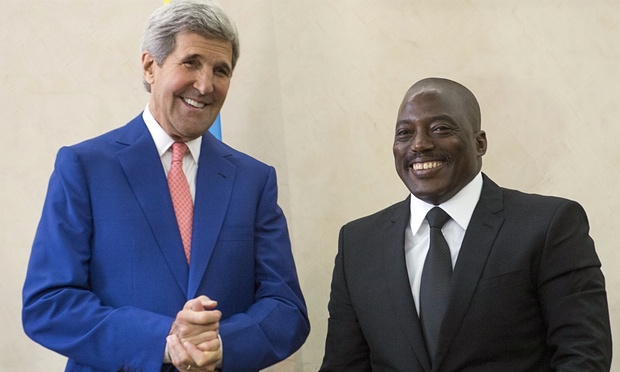
In the press conference that followed the tête-à-tête, John Kerry said he had asked the president to step down at the end of his current mandate: “It is important to the people to be able to know what the process is, to have confidence in that process,” Kerry told the press. He added: “The sooner the process is announced, the sooner that the date is set, the sooner people have an ability to be able to participate. And we believe it ought to be done in keeping with the constitutional process of the country.”
The above notwithstanding, not only did the Congolese information minister deny Kerry’s claim right after the latter’s departure, but also Kabila’s plan to run for a third term is much alive despite the loss of lives in wide protests against his plan. This clearly shows the limitations of diplomacy, even coming from the U.S. government, and even when it is accompanied by hefty financial support. Inside pressure has proven more effective in some countries to stop the growing phenomenon constituting of torturing the constitution for the purpose of staying in power.


